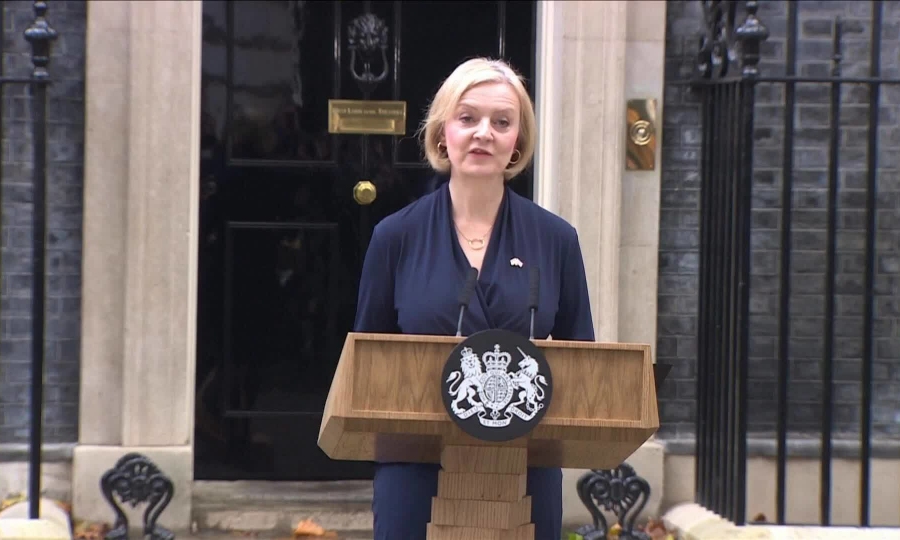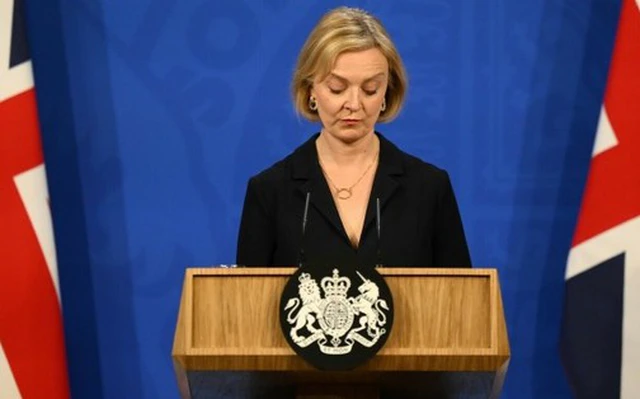Liz Truss – Former Prime Minister of the United Kingdom
Biography and Political Path
Elizabeth Mary Truss, commonly known as Liz Truss, was born on July 26, 1975, in Oxford, England. Before entering politics, she studied at the University of Oxford, where she majored in Philosophy, Politics, and Economics (PPE). After graduating, Truss worked in various positions, including as an accountant and later as a commercial director for Shell and Cable & Wireless.

Political Career
Liz Truss began her political career by joining the Conservative Party and was elected as the Member of Parliament (MP) for South West Norfolk in 2010. She quickly rose through the party ranks and was appointed to various government positions, including Minister for Education, Secretary of State for Environment, Secretary of State for Justice, and Secretary of State for International Trade.
Prime Minister of the United Kingdom
On September 6, 2022, Liz Truss became the Prime Minister of the United Kingdom after Boris Johnson resigned. She was the third woman to hold this position, following Margaret Thatcher and Theresa May. Before becoming Prime Minister, she served as Foreign Secretary from 2021 to 2022.
Challenges and Policies
Liz Truss’s tenure as Prime Minister occurred during a period of significant challenges for the United Kingdom, including Brexit, the energy crisis, and the COVID-19 pandemic. She endeavored to promote economic policies to address these issues; however, many of her policies faced opposition both within and outside the Conservative Party.
One of Truss’s notable policies was a plan for substantial tax cuts to stimulate the economy. However, this plan sparked considerable controversy and concern about its impact on the national budget and interest rates. Strong opposition from both within the Conservative Party and the public led to many of her initial proposals being altered.
Resignation
Due to pressure from party members and public dissatisfaction with her economic policies, Liz Truss resigned on October 25, 2022, after just 49 days in office. She became the shortest-serving Prime Minister in British history. After resigning, she continued her role as an MP and participated in other political activities.

Legacy and Influence
Although Liz Truss’s time as Prime Minister was brief, she left a mark with her bold economic reforms and strong foreign policies. The controversies surrounding her tenure also serve as valuable lessons for future leaders about the importance of careful consideration in policy-making and crisis management.
Liz Truss remains an influential figure in British politics, and her journey exemplifies resilience and relentless effort in contributing to the nation.
The Stages of Political Involvement of Liz Truss
Early Life and Education
- 1975: Elizabeth Mary Truss was born on July 26 in Oxford, England.
- 1993-1996: Studied at the University of Oxford, where she majored in Philosophy, Politics, and Economics (PPE). During this time, she was active in student politics and was a member of the Liberal Democrats.
Beginning of Political Career
- 2000-2005: After graduation, Truss worked in various positions, including as an accountant for Shell and later as a commercial director for Cable & Wireless.
- 2006: She began actively participating in the Conservative Party and was elected as a councillor in Greenwich, London.
Becoming a Member of Parliament
- 2010: Truss was elected as the Member of Parliament (MP) for South West Norfolk in the general election. This was a significant turning point in her political career.
- 2012: Appointed as Under-Secretary of State for Education, responsible for schools and curricula.
Rising in Government
- 2014: Truss was appointed Secretary of State for Environment, Food and Rural Affairs in Prime Minister David Cameron’s government.
- 2016: After the Brexit referendum, she was appointed Secretary of State for Justice in Prime Minister Theresa May’s government, becoming the first woman to hold this position.
- 2017: Promoted to Chief Secretary to the Treasury, responsible for Public Spending and Reform.
Period as Foreign Secretary and Prime Minister
- 2019: After Boris Johnson became Prime Minister, Truss was appointed Secretary of State for International Trade. In this role, she negotiated several free trade agreements for the UK post-Brexit.
- 2021: Promoted to Foreign Secretary, responsible for foreign affairs and international relations.
- 2022: On September 6, Liz Truss became Prime Minister of the UK following Boris Johnson’s resignation.
Time as Prime Minister
- September 6, 2022 – October 25, 2022: Truss’s brief tenure as Prime Minister faced many economic and political challenges. Her tax cut policies met with strong opposition, leading to instability, and she was forced to resign after 49 days.
After Resignation
- 2022 – Present: After resigning as Prime Minister, Liz Truss continues her role as an MP and engages in other political activities. She remains a significant figure in British politics, with lessons from her time as Prime Minister contributing to her career and influence.
Liz Truss has experienced a tumultuous political journey, from her early days working at the local level to the highest position in the UK government. Despite her brief tenure as Prime Minister, her experiences and contributions to British politics remain memorable.
If you found this article interesting and helpful, don’t forget to leave a comment below and rate us 5 stars! Thank you for reading.


